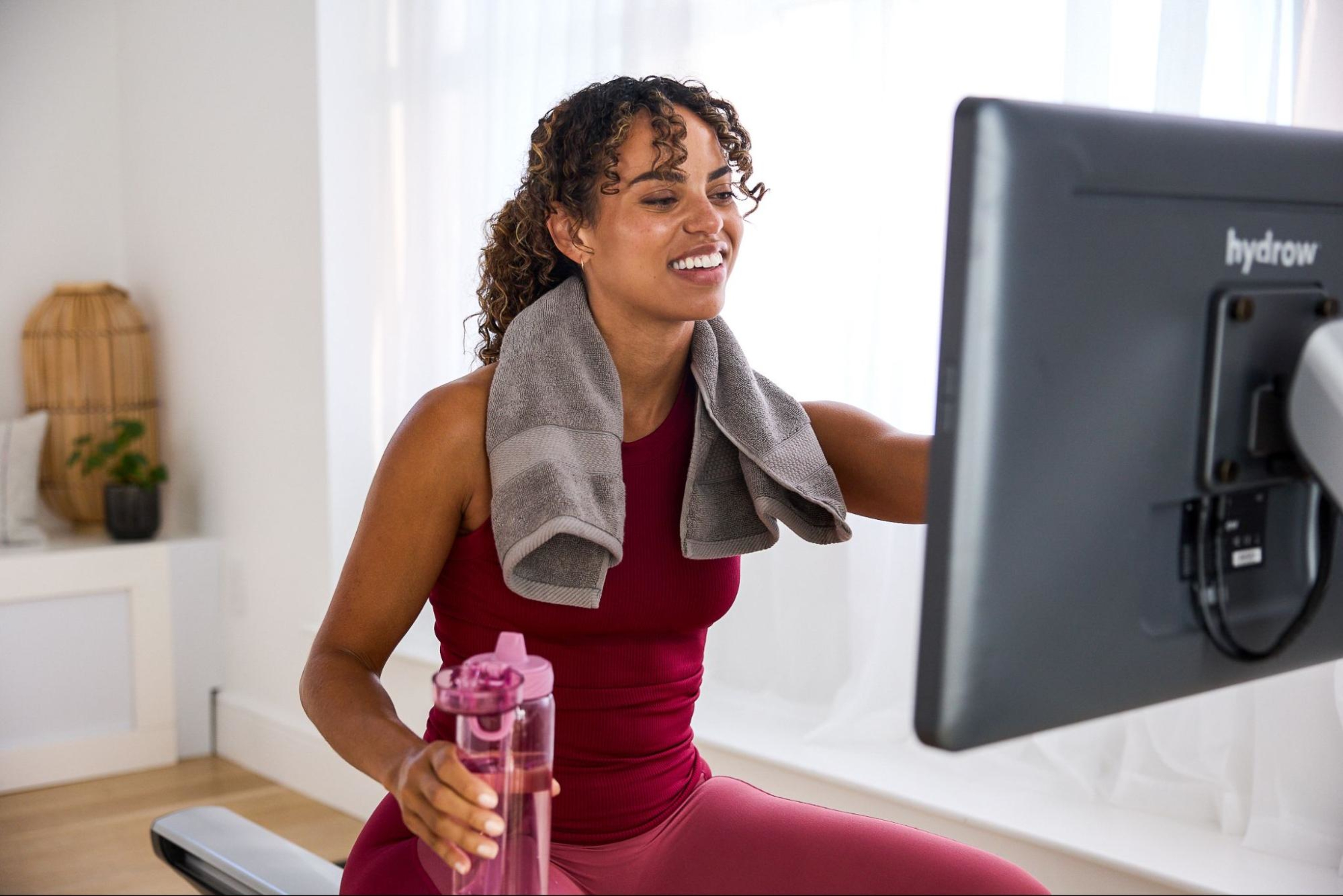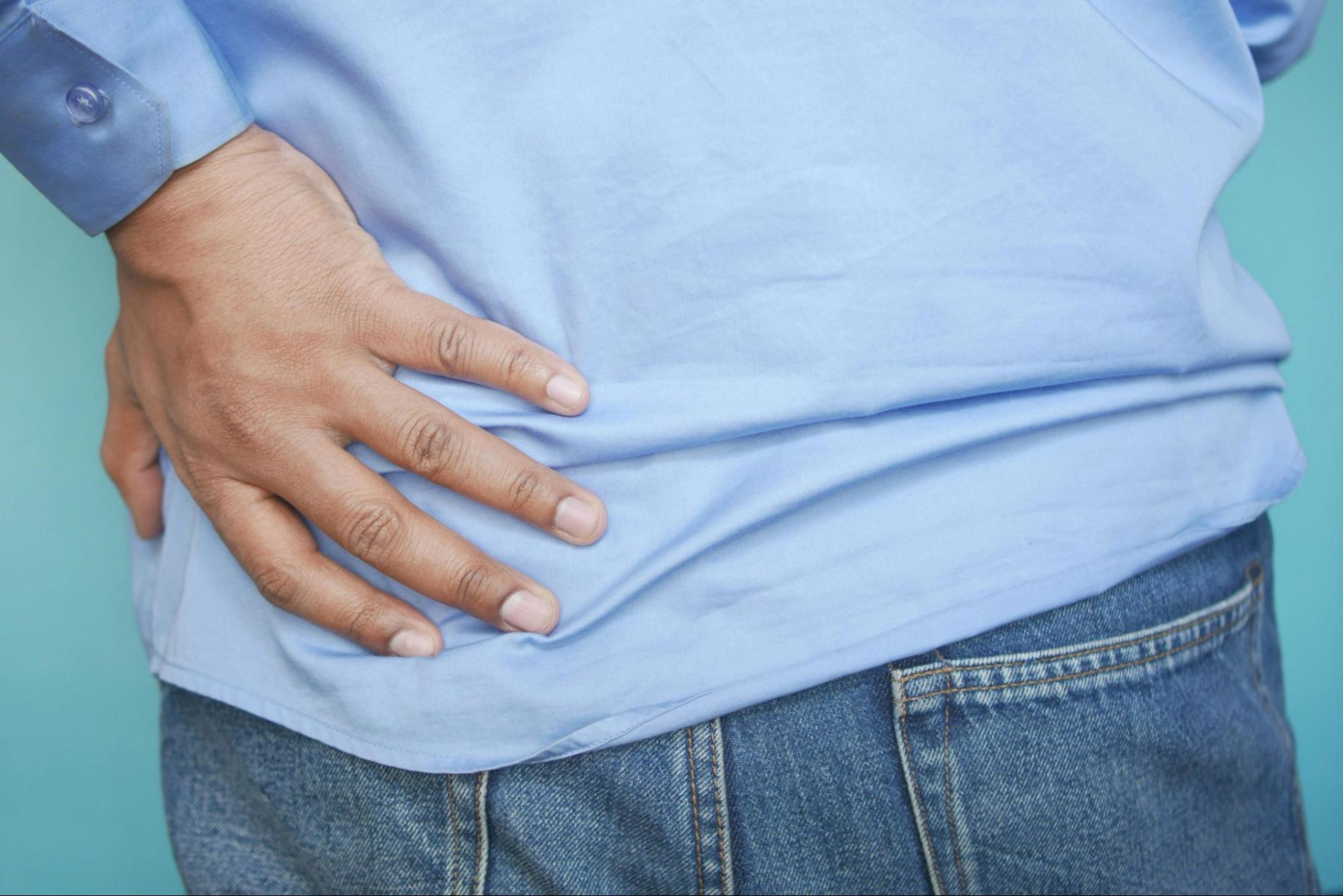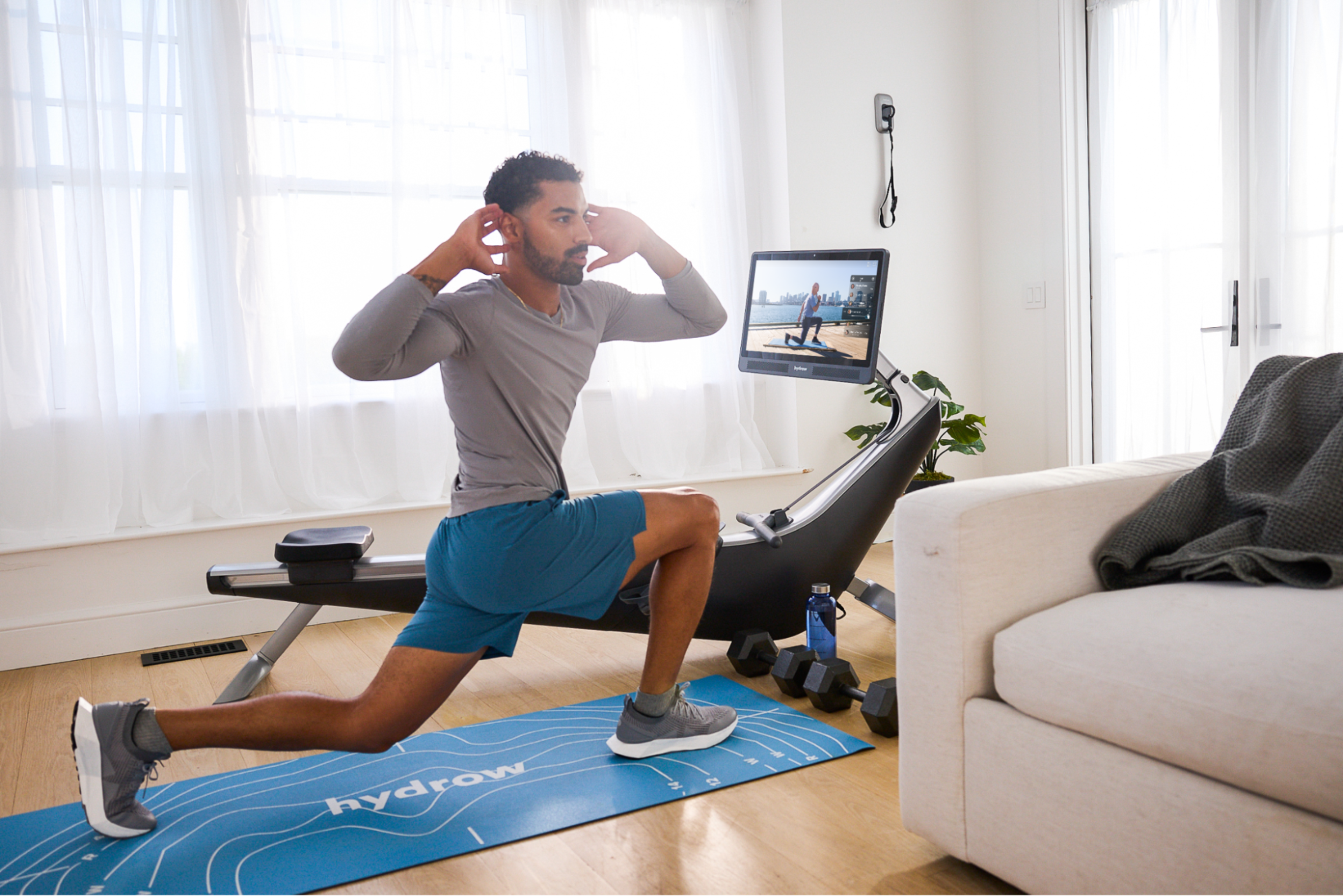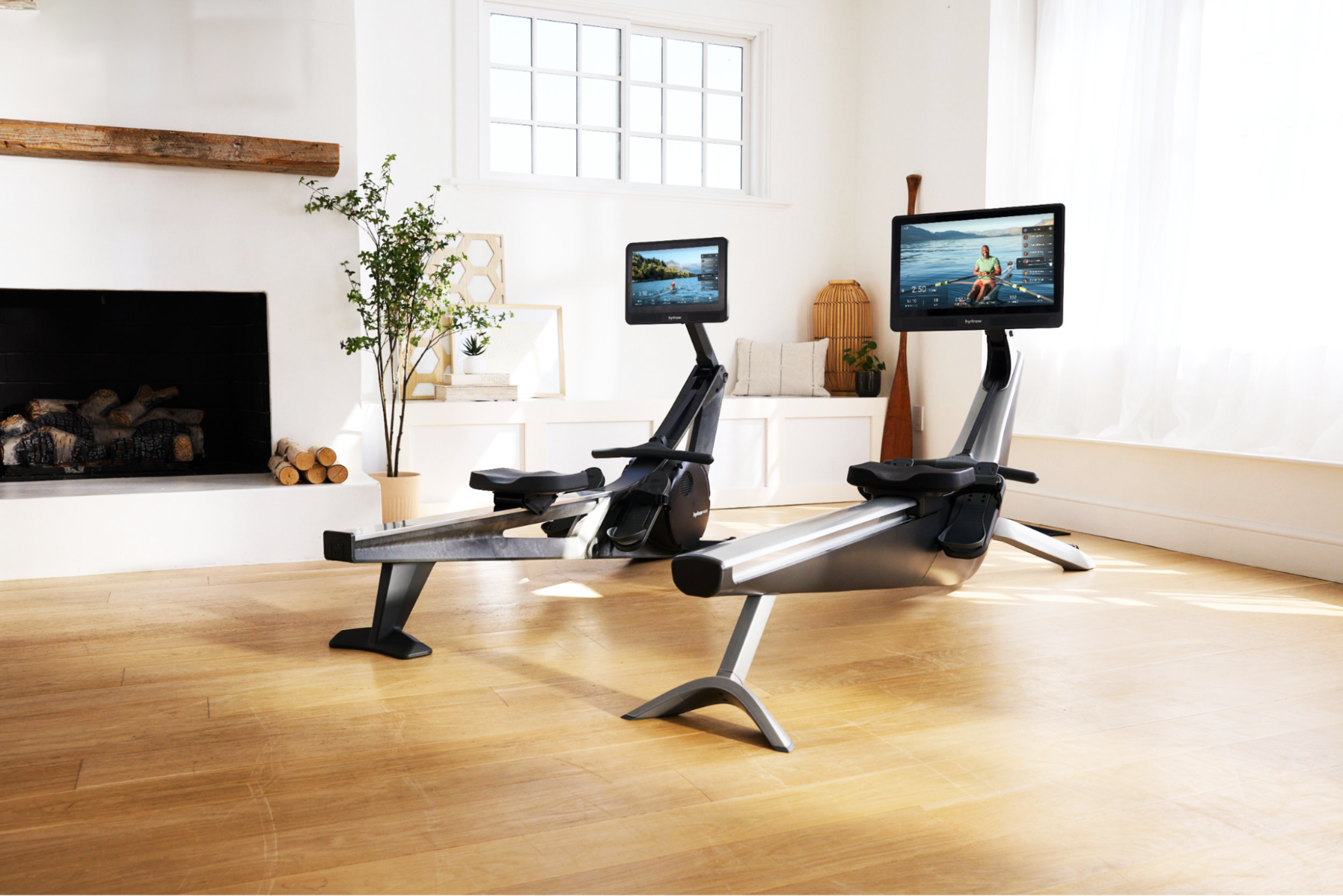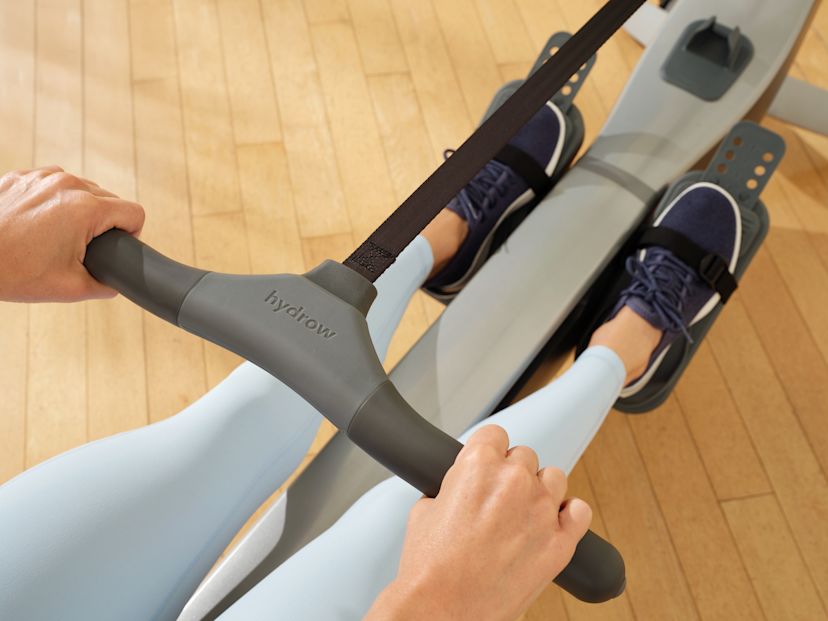Are Rowing Machines Good for Bad Hips?
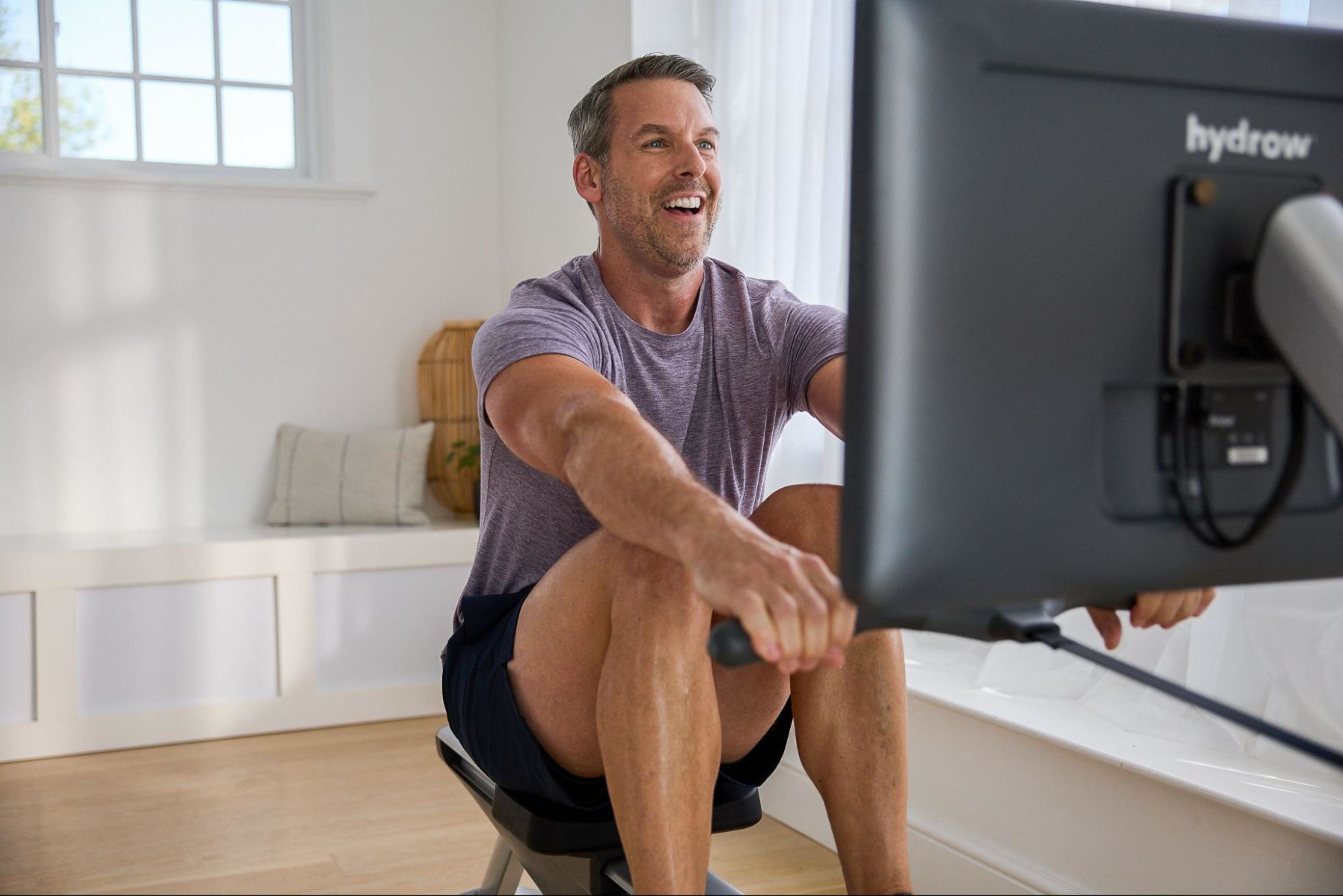
Nobody wants nagging joint pain to get in the way of staying healthy and fit. Even so, not every form of exercise is good for every person. Take bad hips, for example. If you have chronic hip pain from something like arthritis, bursitis, an injury, or a hip replacement, you don’t want to be doing workouts that will make it worse. Instead, you should focus on workouts that strengthen your body and support your hip joints without exacerbating pain.
So, can a rowing machine do that? Are rowing machines good for bad hips? Why yes, they are!
Let’s dive into why.
The benefits of rowing for people with bad hips
Rowing on a rowing machine offers many benefits for people with bad hips. These include:
It’s a full-body workout
It strengthens the muscles around the hip
It offers low-impact cardio
Rowing is a full-body workout
When people have bad hips, their instinct is often to limit movement in that particular area in fear of making the pain or discomfort worse. Rowing offers a full-body workout—engaging the calves, hamstrings, glutes, quadriceps, back, core, and arms—all without putting any specific pressure on the joints, including the hips.
Rowing strengthens the muscles around the hip
One of the most effective ways to lessen or (in some cases, eliminate) joint pain is to strengthen the muscles around that joint. When you do this, you’re building up the muscles that can then take some of the load and pressure off the joint, reducing inflammation and curbing pain.
Rowing primarily targets several large lower-body muscle groups such as the quadriceps, hamstrings, hip flexors, and glutes, which are the largest muscles supporting the pelvis and hips. People with bad hips can promote the overall mobility of their hips and reduce pain by strengthening these muscles (as well as the core muscles) and doing additional stretching.

Cardio and strength, combined
Burn calories and build muscle with steady, natural movements.
Rowing offers low-impact cardio
Many go-to forms of cardio, like running, dancing, or plyometrics, are very high-impact on the joints of the lower body, especially the hips. With rowing, you can get the cardiovascular benefits to support your health-boosting or calorie-burning goals without the impact on the hips.
Rowing with bad hips: Risks and considerations
If you do decide to try out rowing with bad hips, there are a few factors you should keep in mind:
Potential strain from improper form
Rowing is low-impact on the hips, but that doesn’t mean they aren’t part of the rowing movement at all. The body swing, in which you lean back slightly after straightening your legs and then lean forward before bending them again, is a crucial part of the stroke that engages the hips. If you don’t lean back enough at the Finish, you risk maintaining a crunched, body-over position in the hips throughout the workout that could actually worsen your pain.
Overuse injuries
These are a risk with any form of exercise, not just rowing.. While you can row every day if you want to, having bad hips could increase your chance of exacerbating your pain during workouts or experiencing tangential injuries.

Did you know?
Over 90% of Hydrow members are still active one year later.
Adjusting intensity
One of the great things about rowing is that you can get an exceptional, full-body workout at any intensity. While rowing is safe for people with bad hips, it’s always recommended to start rowing at an intensity that meets you where you’re at, especially if you’re new to the activity.
Listening to your body is always key, along with slowly increasing your intensity over time as you improve and build capacity.
Tips for staying safe when using a rowing machine with bad hips
Stay safe and protect your hips with these tips:
Start slow
As with any new workout, you want to start slow and see how your body feels. This is especially key if you haven’t rowed before, as the movement can take some getting used to. Try a few 10-minute or beginner rowing workouts before moving on to longer, more challenging ones.
Focus on technique
As we mentioned earlier, rowing with proper technique is key to making sure the movement is supportive and not damaging for your hips. Take some time to practice proper form at low stroke rates and low intensities before rowing harder and faster. It’s much easier to lose your technique at higher stroke rates—especially the body swing, which is important to making rowing work for your hips.
Warm up and cool down
The last thing you want to do during your workout (especially if you’re rehabbing or working through an existing injury or ailment) is hurt yourself. One of the best ways to minimize your injury risk is to take the time to warm up before your workout and cool down after. Warming up will ensure that your muscles are warm, loose, supple, and ready to work, while cooling down will reduce post-workout soreness.
Make modifications
The rowing stroke is super easy to adjust based on your fitness level, body type, and any existing or lingering injuries like bad hips. Pay attention to how your body and your hips feel as you row, then modify accordingly. Some adjustments you may need to make include:
Lowering the resistance if you experience pain in your hips during the Drive, or when you push back with the legs.
Shortening your stroke (not bringing your butt as close to your heels) if you experience pain in your hips at the Catch, or the front of the stroke.
Shortening your rowing sessions if you start to experience pain or fatigue in your hips towards the end of your workout.
Rowing at a lower stroke rate to encourage proper rowing technique.
Let’s get rowing!
Rowing offers a low-impact, full-body workouts that can help you reap the benefits of a regular fitness regimen without making your joint pain worse.
Considering adding a rowing machine to your home? Hydrow brings more than just equipment—it brings total-body results and intelligent training.
Each stroke works 86% of your muscles, delivering an efficient, immersive workout—and with real-time feedback and personalized scores, Hydrow helps you help you row smarter, build strength, and stay motivated. Just 20 minutes a day is all it takes to move with purpose, boost energy, and see results that last.
Hydrow’s workouts are led by world-class and Olympic Athletes and filmed on real water in beautiful locations around the world. Whether you’re rowing or cross-training with yoga, Pilates, strength, mobility, or circuit workouts, you’ll find movement that motivates—and keeps you coming back.
Ready to train smarter? Explore what Hydrow can do for you.
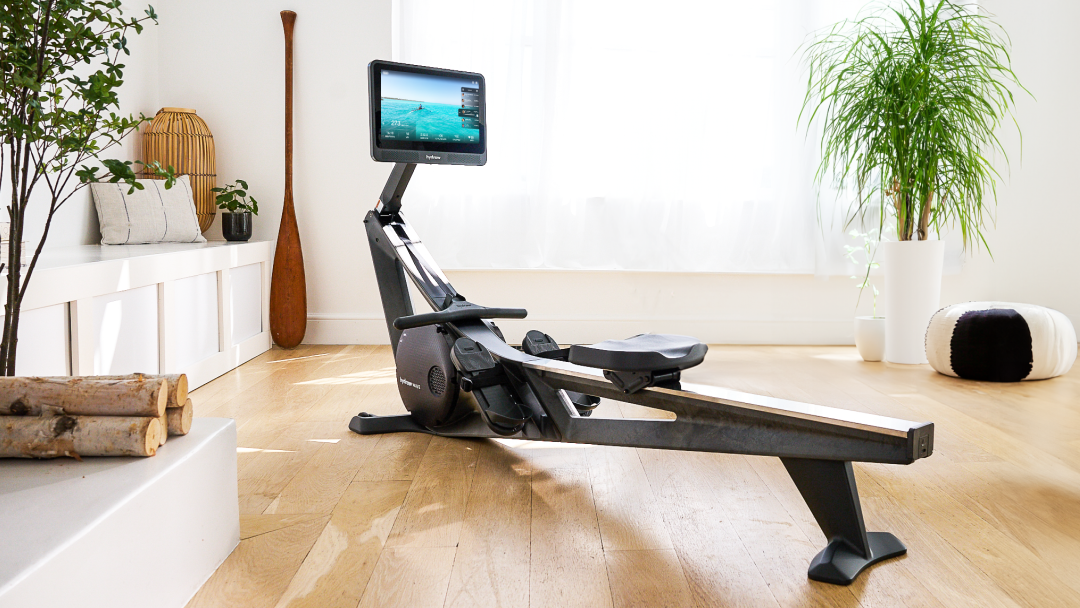
Real strength keeps moving
Learn how working out with Hydrow can help support a fuller, more active life.

